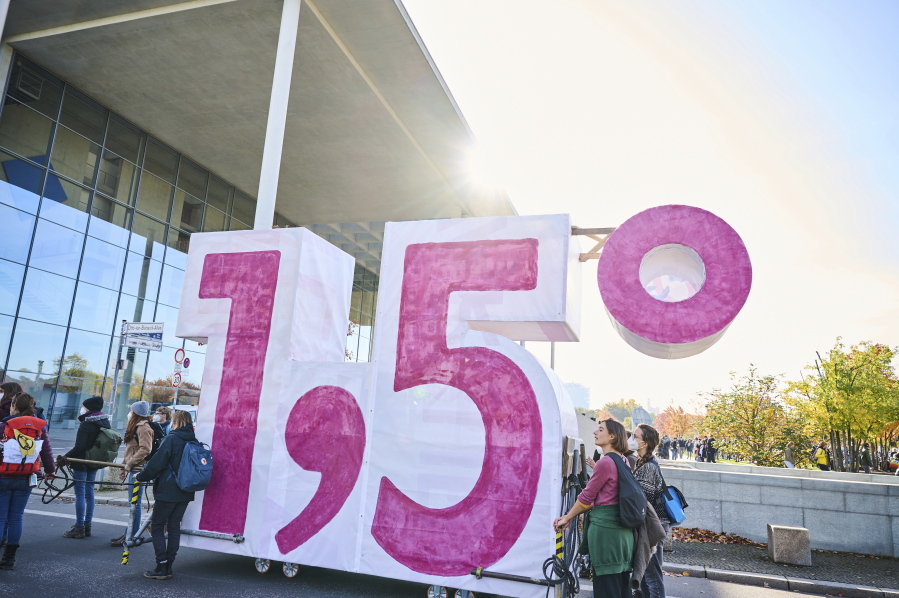BERLIN — A target for rich countries to provide poor nations with $100 billion in aid each year to tackle global warming will be missed, dealing a blow to the upcoming U.N. climate talks in Glasgow.
Senior officials from Britain, Canada and Germany, who had hoped to break a deadlock in negotiations ahead of next week’s summit, announced Monday that current data shows the goal won’t be reached until 2023 — three years later than agreed.
“The goal was almost certainly missed in 2020,” said Alok Sharma, the U.K. official who will chair the talks in Glasgow.
Failure to fulfil the pledge first made in 2009 and reaffirmed at the 2015 Paris climate talks, had “been a source of deep frustration for developing countries,” he added. “I absolutely get this.”
But Sharma, who will now have to face the frustration of poor nations over the funding shortfall, pointed to a projected rise in financial aid beyond the agreed threshold in the coming years.
“The plan provides confidence that the $100 billion will be met in 2023, and importantly, it projects that the $100 billion will be exceeded in subsequent years, with up to $117 billion being mobilized in 2025,” he said.
Over the 2021-2025 period, $500 million would likely be mobilized in public and private finance, he added.
The report was compiled by Canada’s minister of environment and climate change, Jonathan Wilkinson, and Germany’s deputy environment minister, Jochen Flasbarth, who drew on data provided by the Paris-based Organization for Economic Cooperation and Development, which tracks international flows of climate finance.
“Not all of our conversations were really … polite,” Flasbarth told reporters of the talks that had taken place with rich and poor nations in recent weeks.
“There is disappointment and we share this disappointment,” he said. “But the result we have now is not bad enough (to allow) not to be constructive in Glasgow.”
But Mohamed Adow, a long-time observer of U.N. climate talks who now heads Nairobi-based environmental think tank Power Shift Africa, said the plan won’t satisfy poor nations, who have insisted that the original target must be met.
“The $100 billion of climate finance is not only a lifeline to poor and vulnerable communities on the front line of a climate crisis they did not cause, it’s also the bare minimum that rich countries need to do to hold up their end of the bargain at COP26,” he said.



